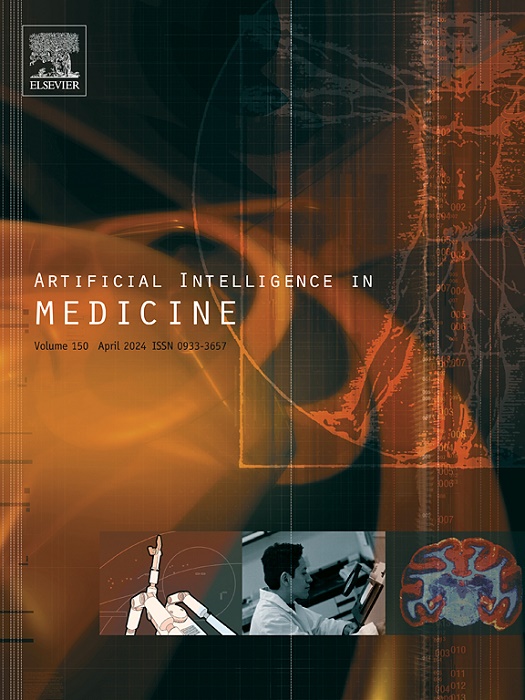多发性硬化症的机器学习和临床脑电图数据:系统回顾
IF 6.2
2区 医学
Q1 COMPUTER SCIENCE, ARTIFICIAL INTELLIGENCE
引用次数: 0
摘要
多发性硬化症(MS)是一种中枢神经系统(CNS)的慢性神经炎症性疾病,在这种疾病中,身体的免疫系统攻击并破坏保护神经纤维的髓鞘,导致广泛的衰弱症状,并导致轴突信号传递中断。准确的预测、诊断、监测和治疗(PDMT)对改善患者预后至关重要。神经成像技术的最新进展,特别是脑电图(EEG),与机器学习(ML)技术(包括深度学习(DL)模型)相结合,为加强MS管理提供了有希望的途径。本系统综述综合了ML和DL模型应用于MS脑电图数据的现有研究,探讨了所使用的方法,重点关注卷积神经网络(cnn)和混合模型等DL架构,并强调了ML技术和EEG技术的最新进展,这些进展显著改善了MS的诊断和监测。本文讨论了缓解这些挑战的策略,包括先进的预处理技术、多样化的训练数据集、交叉验证方法和可解释的人工智能(AI)。最后,本文概述了机器学习在MS管理中的潜在未来应用和趋势。这篇综述强调了机器学习增强脑电图分析在改善多发性硬化症管理方面的变革潜力,为未来的研究方向提供了见解,以克服现有的局限性并进一步改善临床实践。本文章由计算机程序翻译,如有差异,请以英文原文为准。
Machine learning and clinical EEG data for multiple sclerosis: A systematic review
Multiple Sclerosis (MS) is a chronic neuroinflammatory disease of the Central Nervous System (CNS) in which the body’s immune system attacks and destroys the myelin sheath that protects nerve fibers, leading to a wide range of debilitating symptoms and causing disruption of axonal signal transmission. Accurate prediction, diagnosis, monitoring and treatment (PDMT) of MS are essential to improve patient outcomes. Recent advances in neuroimaging technologies, particularly electroencephalography (EEG), combined with machine learning (ML) techniques — including Deep Learning (DL) models — offer promising avenues for enhancing MS management. This systematic review synthesizes existing research on the application of ML and DL models to EEG data for MS. It explores the methodologies used, with a focus on DL architectures such as Convolutional Neural Networks (CNNs) and hybrid models, and highlights recent advancements in ML techniques and EEG technologies that have significantly improved MS diagnosis and monitoring. The review addresses the challenges and potential biases in using ML-based EEG analysis for MS. Strategies to mitigate these challenges, including advanced preprocessing techniques, diverse training datasets, cross-validation methods, and explainable Artificial Intelligence (AI), are discussed. Finally, the paper outlines potential future applications and trends in ML for MS management. This review underscores the transformative potential of ML-enhanced EEG analysis in improving MS management, providing insights into future research directions to overcome existing limitations and further improve clinical practice.
求助全文
通过发布文献求助,成功后即可免费获取论文全文。
去求助
来源期刊

Artificial Intelligence in Medicine
工程技术-工程:生物医学
CiteScore
15.00
自引率
2.70%
发文量
143
审稿时长
6.3 months
期刊介绍:
Artificial Intelligence in Medicine publishes original articles from a wide variety of interdisciplinary perspectives concerning the theory and practice of artificial intelligence (AI) in medicine, medically-oriented human biology, and health care.
Artificial intelligence in medicine may be characterized as the scientific discipline pertaining to research studies, projects, and applications that aim at supporting decision-based medical tasks through knowledge- and/or data-intensive computer-based solutions that ultimately support and improve the performance of a human care provider.
 求助内容:
求助内容: 应助结果提醒方式:
应助结果提醒方式:


